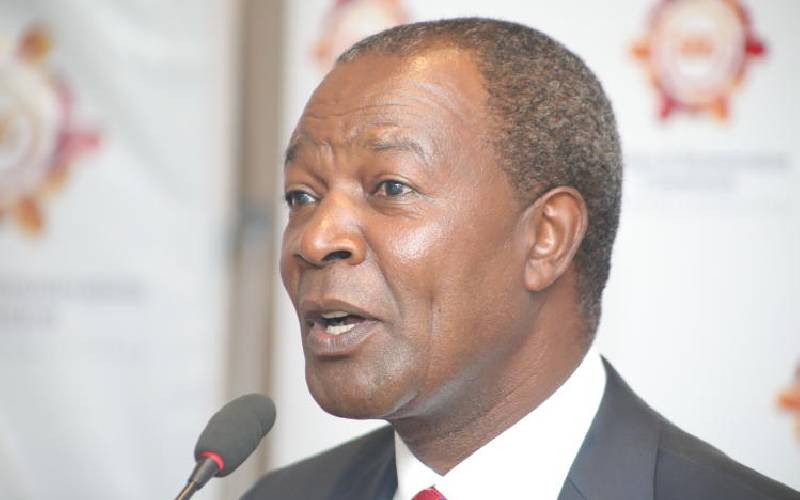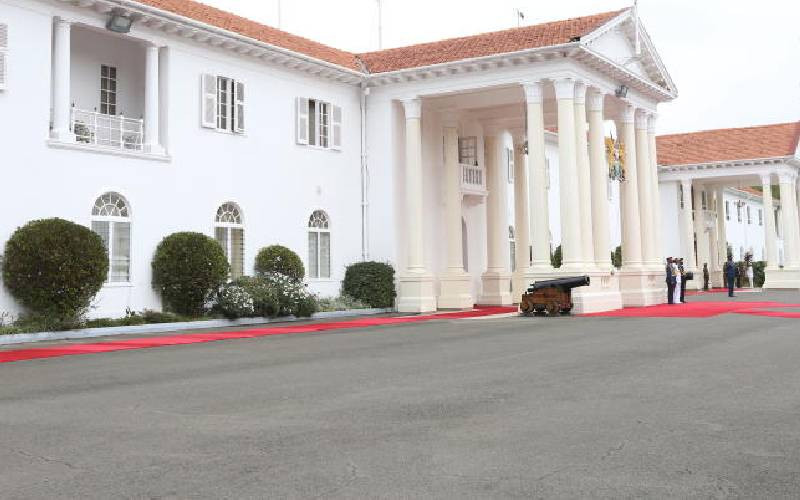It is that time of the year when Kenyans anxiously await the Budget for the next financial year that is expected to be released next week. While most of the expectations around the expenditure side is already known, it is the revenue raising measures that all are keen to know. In recent years, budget making has almost become a numbers game, with a wish list on the expenditure side and huge gaps on the financing side. This year is no different — just borrow and spend!
The Government expenditure for the 2014/15 is estimated at Sh1.779 trillion against an estimated national revenue inflows of Sh1.026 trillion, just slightly more than half the expenditure. The Treasury plans to finance Sh343 billion deficit through external and domestic borrowing. Total public debt in March this year was around Sh2.3 trillion and rising! This is before we load on recent Chinese MoUs and the Eurobond. As late as yesterday, the MPs were topping up the expenditure estimates by an additional Sh10 billion, urging the Treasury to finance it through ‘cost-saving measures, increased efficiency and proper administration’! Amazing!
It is clear the Treasury will have to borrow heavily, assuming revenue projections may not be realised as planned. And when the borrowing does not fall through, the Treasury encounters difficulties in meeting its obligations. This explains why it invariably delays exchequer releases to the ministries and counties, adversely affecting planned expenditure. For instance, the current year’s national government development budget was Sh447 billion; yet by December, six months into the year, Government had only spent 15.8 per cent. It is unlikely that it will exceed 50 per cent by the end of the financial year.
It is in this situation that the Treasury took an expensive two-year syndicated commercial loan of $600 million (Sh53 billion) in 2012 that was due end of last month. It couldn’t pay and asked for rescheduling of the loan. As always, banks demand their pound of flesh when you default on the payments; hence, government had to part with Sh1.2 billion in penalties last week. Treasury Minister Robinson Githae at the time dismissed concerns that the Government would have difficulty in repaying the debt. How much of that expensive loan went into infrastructure? You tell me!
Meanwhile, we still have to pay the loan and so the Government is taking out a massive 10-year $2 billion Eurobond to partly pay off that bank loan. Talk about taking a debt to pay a debt! A Eurobond is a bond denominated in a currency other than that of the country issuing it. You can raise money in the global financial market anytime, provided you can pay the costs. As long as the yield is right, investors will overlook the political risks. Hence, quite likely that Treasury will get the money, but at a price of maybe 8 to 9 per cent per annum. that will be pretty expensive. Our existing foreign debt carries an average of 1.6 per cent by contrast.
Zambia, Nigeria, Rwanda, Tanzania, Gabon and Ghana are some of the countries that floated such bonds in recent years but at a favourable rate, such as Zambia’s 5.625 per cent, and Gabon’s at 6.30 per cent. Inadequacy of ODA and concessional lending to Africa, coupled with the conditionality associated with multilateral institutions make the Eurobond more attractive source, albeit very expensive. Moreover, it’s the future leaders who will have to worry about its repayment! Eurobonds have enormous downside risks associated with exchange rate, maturity mismatches, oil and commodity price volatility and poor debt management structure. Failure to prudently manage the use of these funds will ultimately lead to more loans to service the outstanding bonds.
After paying off the bank loan, Government plans to use the remaining money on ongoing road projects and energy-related activities such as power transmission. With a vibrant capital markets that is very liquid, Government ought to have considered tapping these resources to finance some of these projects especially those in the energy sector.
 The Standard Group Plc is a
multi-media organization with investments in media platforms spanning newspaper
print operations, television, radio broadcasting, digital and online services. The
Standard Group is recognized as a leading multi-media house in Kenya with a key
influence in matters of national and international interest.
The Standard Group Plc is a
multi-media organization with investments in media platforms spanning newspaper
print operations, television, radio broadcasting, digital and online services. The
Standard Group is recognized as a leading multi-media house in Kenya with a key
influence in matters of national and international interest.
 The Standard Group Plc is a
multi-media organization with investments in media platforms spanning newspaper
print operations, television, radio broadcasting, digital and online services. The
Standard Group is recognized as a leading multi-media house in Kenya with a key
influence in matters of national and international interest.
The Standard Group Plc is a
multi-media organization with investments in media platforms spanning newspaper
print operations, television, radio broadcasting, digital and online services. The
Standard Group is recognized as a leading multi-media house in Kenya with a key
influence in matters of national and international interest.








